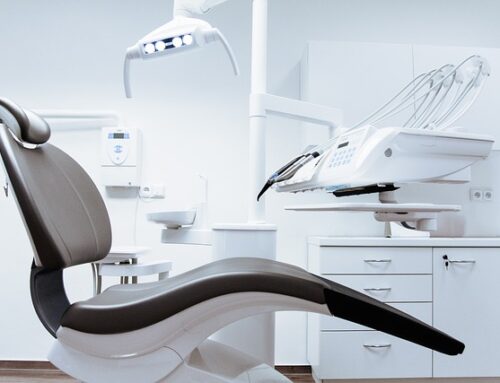If your patients suffer from jaw pain, it can be debilitating often affecting their ability to eat and speak. This pain can develop from their sinuses, ears, teeth or jaw itself, which means it is key that your patients understand how they can find immediate relief. There are so many different paths leading to jaw pain, which is typically due to an abnormality or injury to the temporomandibular joint (TMJ). For patients with jaw pain, here are six tips to provide them to find relief.
Apply heat or ice packs
This first option is good for providing immediate relief to sore jaws. First, place ice in a plastic bag and then wrap it in a thin cloth and apply it to your jaw for 10 minutes. You can also use an ice pack wrapped in cloth if you have one. After 10 minutes, massage the area briefly and reapply the cold pack. You can also run warm water over a washcloth and apply it to your jaw. This moist heat can help to relax your overactive jaw muscles, resulting in pain relief. It is OK to re-wet the washcloth several times to maintain the heat.
Over-the-counter pain relievers
Look to ibuprofen or acetaminophen for over-the-counter pain relievers to reduce any discomfort or inflammation you are experiencing. If you are unsure if this is the best option, contact Dr. Patel to learn more about what you can do to find relief. While this is not a permanent solution, it can help for immediate relief until you can get further help and guidance.
Massage your jaw
Another quick solution is to massage your jaw where the pain is. Using your index finger and middle finger, press the sore areas of your jaw. This might be the area right before your ear where your jaw joints meet. Rub in a circular motion for up to 10 rotations. Next, open your mouth and repeat this exercise. You can also try to massage the muscles on the side of your neck to relieve tension in your jaw.
Find ways to reduce stress
Try to perform stress relieving techniques to reduce jaw clenching. This might include yoga, journaling, reading, meditation or going on a walk. By performing these activities, you can often reduce your jaw pain if it is caused by stress. If there is another stress relieving activity that you enjoy, try that too.
Avoid chewy foods
We’ve talked about this before, but we cannot reiterate this enough: try to avoid chewy foods if you suffer from jaw pain. Foods that are chewy, tough or crunchy can place a significant amount of strain on your jaw joint. This can lead to pain and discomfort later. Try to avoid apples, beef jerky, chewing gum and ice.
Skip the caffeine
I know, I know, you need your morning coffee to get through the day. However, to what extent is it worth it? Is having your morning cup worth the muscle tension and jaw pain you will experience with caffeine? Probably not. If you can avoid large amounts of caffeinated coffee and tea, it may help to reduce jaw pain in the long run. While you might initially feel muscle tension from caffeine withdrawal, it will pass shortly after quitting or limiting your caffeine.
Are there any other tips you provide your patients with jaw pain? If so, what are they? Together we can continue to provide our patients with options for jaw pain relief.





